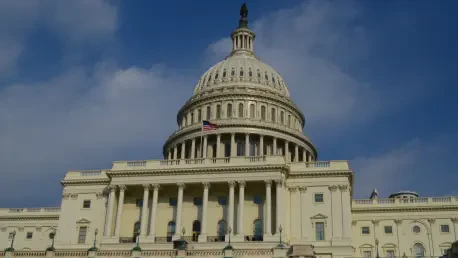In the intricate web of politics and regulation, a significant event involving President Donald Trump, EchoStar, and the FCC illuminates the potential repercussions of political intervention on regulatory processes. This analysis aims to unravel how political involvement catalyzed crucial developments in EchoStar’s FCC-related challenges, reshaping corporate and regulatory landscapes. The exploration is intended to offer crucial insights into the impact of political forces on corporate strategies and regulatory compliance.
Shedding Light on Political Influence in Regulatory Frameworks
Evident from historical exploits, industry leaders have tactically engaged in political advocacy to influence regulatory outcomes. This strategic maneuvering has become more pronounced as industries, particularly telecommunications, face evolving regulatory structures. EchoStar symbolizes the balancing act between regulatory adherence and political influence, reflecting substantial legacies that extol both protection and potential systemic shifts.
Examining such interactions illuminates the dual capability of political involvement: It shields prominent industry players from severe regulatory consequences while simultaneously instigating modifications in regulatory approaches. Grasping these foundational elements is pivotal for understanding how politics intertwines with regulatory compliance in contemporary settings.
Impact of Political Engagement on EchoStar’s Compliance Dynamics
The recent intervention by Donald Trump in EchoStar’s affairs provides an illustrative case of political personalities influencing regulatory integrity. His involvement underscored the power wielded by key figures in potentially deferring punitive regulatory actions, as evidenced by EchoStar’s share price surge.
However, the consequences extend beyond immediate financial relief. A dependency on political leverage might pose risks of compromising the consistency and impartiality of regulatory enforcement. This underscores the importance of examining political advocacy against ethical considerations and the long-term implications on equitable regulatory processes.
Varied Perspectives on Political Involvement and Regulatory Autonomy
The divergence in perspectives regarding political intervention creates a spectrum of industry stances. Policy analysts advocate for transparency and emphasize regulatory bodies’ need to maintain autonomy in the face of economic or political pressures. Continuous historical shifts reaffirm the necessity for regulatory fidelity despite strategic political lobbying aimed at safeguarding industry interests.
Political engagement, while providing immediate advantages, also harbors the risk of estranging minority stakeholders who favor unbiased market dynamics. The intricate dance between politics and regulation mandates a careful evaluation of both benefits and potential disruptions prompted by political influences.
Adapting to Diverse Regulatory Environments Across Global Markets
Complicating the scenario are regional differences and varied business-government relations globally. Political positions may offer strategic support in some markets, yet trigger resistance against favoritism in others. Emerging international cooperation frameworks and compliance strategies showcase the adaptability required in navigating these diverse political and regulatory landscapes.
Understanding the subtleties of each market corrects any oversimplified assumptions about political power being a remedy for regulatory challenges, enabling businesses to tailor strategies for complexity effectively.
Evolving Hybrid Models: The Future of Compliance and Regulation
As political influence interlaces with technological advancements and economic objectives, the regulatory landscape must adapt swiftly to remain relevant. Innovating governance structures anticipates restructuring compliance frameworks, favoring transparency and agility to match dynamic global industries. Experts forecast a hybrid model where regulatory traditions mesh with adaptive political inputs.
Examining potential futures beyond EchoStar, a pivotal question arises: Will regulatory bodies bolster defenses against undue influences or adopt cooperative engagements? The resulting landscape will redefine industry standards in unprecedented ways.
Strategic Insights for Navigating Political Influence in Regulation
From this analysis, stakeholders gain strategic guidance in navigating regulatory landscapes while judiciously engaging in political advocacy. Industry leaders should strive for collaborative norms, aligning with political figures while maintaining robust compliance standards to preserve market integrity and reputation.
Strategies should emphasize foresight and adaptability: leveraging political alliances where appropriate while fortifying regulatory commitments to ensure sustainable operations. Reflecting on such narratives can guide informed decision-making in complex business-government dynamics.
EchoStar’s experience illustrates the profound impact of political power on regulatory landscapes, a theme resonating across industries and inviting continuous scrutiny. The exploration of these dynamics offers valuable lessons for harmonizing influence and compliance with integrity, fostering informed strategies for stakeholders navigating the evolving terrain.









